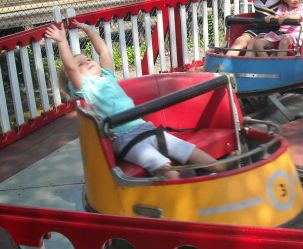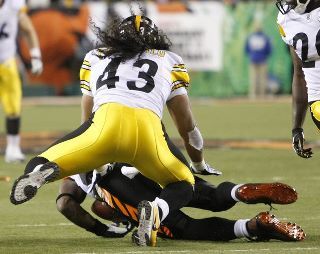Post by misty on Jan 7, 2007 17:56:42 GMT -5
Charlie Girl
www.bpkids.org/site/PageServer?pagename=lrn_about
How common is bipolar disorder in children?
It is not known, because epidemiological studies are lacking. However, bipolar disorder affects an estimated 1-2 percent of adults worldwide. The more we learn about this disorder, the more prevalent it appears to be among children.
It is suspected that a significant number of children diagnosed in the United States with attention-deficit disorder with hyperactivity (ADHD) have early-onset bipolar disorder instead of, or along with, ADHD.
Depression in children and teens is usually chronic and relapsing. According to several studies, a significant proportion of the 3.4 million children and adolescents with depression in the United States may actually be experiencing the early onset of bipolar disorder, but have not yet experienced the manic phase of the illness.
What are the symptoms of bipolar disorder in children?
misty
Bipolar Kids - It's Different!
Written by: David Oliver
Yes, children can develop bipolar disorder before they reach their teen years. This is a relatively recent discovery, and it's unfortunate that it's taken so long for many doctors to realize this. But now that psychiatrists and doctors are recognizing that bipolar can show up in even young children, it's important to know what to look for.
Why?
Because if you or a loved one in your family is bipolar, there is a greater risk that a child in your family will develop symptoms of bipolar.
The signs of bipolar in children are sometimes missed early on because they are somewhat different than they are in adults and because often grown-ups say things like, "Oh, it's just a phase they're going through."It's dangerous to ignore the signs of bipolar in children or attribute it to normal teenage moodiness, so if bipolar is a part of your family, watch for the warning signs in your children.
When a child is in a manic phase, they aren't as likely to be euphoric, outgoing and charming like an adult. They are more likely to be loud, confrontational and destructive, lashing out at people around them. Often parents will assume this is just "angst."
When depressed, these same children may not be able to explain their feelings clearly and will complain instead of being sick, with symptoms like frequent headaches, stomach aches and sleeping a lot. Their grades may drop off for a period of time and they may become extremely sensitive, imagining that their friends don't like them or becoming overly hurt when criticized or reprimanded.
If a child you know suffers from depression and is being treated for it, watch for signs that they may have been improperly diagnosed. According to the American Academy of Child and Adolescent Psychiatry, almost one in three children with depression may actually be beginning to exhibit signs of bipolar.
If a child being treated for bipolar is on the wrong medication, he will go into a tailspin of manic behavior. Watch for: extreme restlessness, non-stop talking, comments like "I can't get my mind to shut off," and jumping from activity to activity.
You don't want to constantly monitor your children day in and day out, but any time you see a pattern of changes in behavior, be aware that if they are extreme or unusual, you should mention the history of bipolar to a doctor and discuss the possibility.
The best hope for a child with bipolar is early intervention.
About The Author
David Oliver is the founder of BipolarCentral.com a one stop source of information on how to cope and deal with bipolar disorder. Sign up for one of his FREE Mini Courses on Bipolar by visiting his website.




